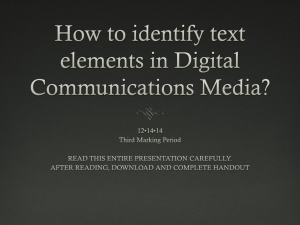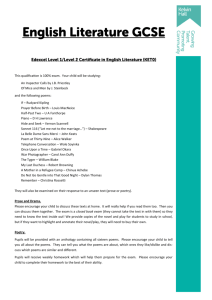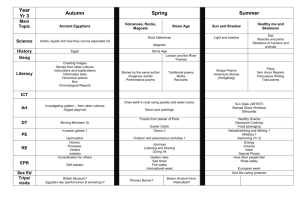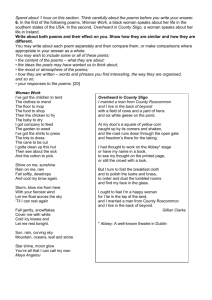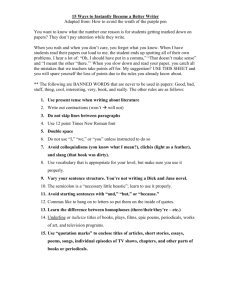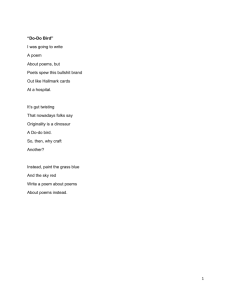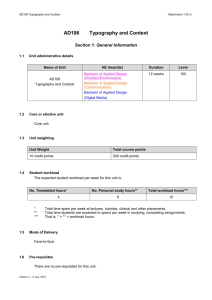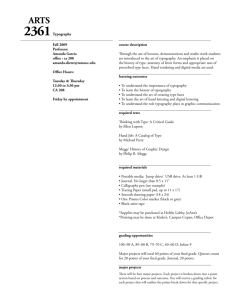Letter to RWW Robertson, 09-02-1947 Text: MS
advertisement
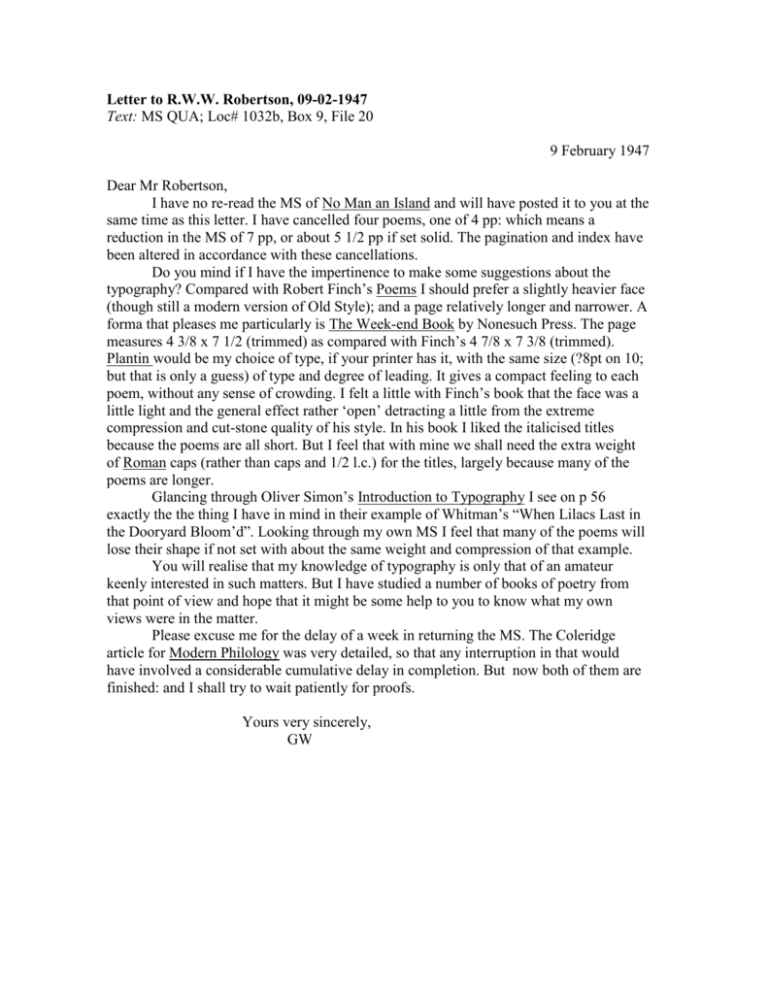
Letter to R.W.W. Robertson, 09-02-1947 Text: MS QUA; Loc# 1032b, Box 9, File 20 9 February 1947 Dear Mr Robertson, I have no re-read the MS of No Man an Island and will have posted it to you at the same time as this letter. I have cancelled four poems, one of 4 pp: which means a reduction in the MS of 7 pp, or about 5 1/2 pp if set solid. The pagination and index have been altered in accordance with these cancellations. Do you mind if I have the impertinence to make some suggestions about the typography? Compared with Robert Finch’s Poems I should prefer a slightly heavier face (though still a modern version of Old Style); and a page relatively longer and narrower. A forma that pleases me particularly is The Week-end Book by Nonesuch Press. The page measures 4 3/8 x 7 1/2 (trimmed) as compared with Finch’s 4 7/8 x 7 3/8 (trimmed). Plantin would be my choice of type, if your printer has it, with the same size (?8pt on 10; but that is only a guess) of type and degree of leading. It gives a compact feeling to each poem, without any sense of crowding. I felt a little with Finch’s book that the face was a little light and the general effect rather ‘open’ detracting a little from the extreme compression and cut-stone quality of his style. In his book I liked the italicised titles because the poems are all short. But I feel that with mine we shall need the extra weight of Roman caps (rather than caps and 1/2 l.c.) for the titles, largely because many of the poems are longer. Glancing through Oliver Simon’s Introduction to Typography I see on p 56 exactly the the thing I have in mind in their example of Whitman’s “When Lilacs Last in the Dooryard Bloom’d”. Looking through my own MS I feel that many of the poems will lose their shape if not set with about the same weight and compression of that example. You will realise that my knowledge of typography is only that of an amateur keenly interested in such matters. But I have studied a number of books of poetry from that point of view and hope that it might be some help to you to know what my own views were in the matter. Please excuse me for the delay of a week in returning the MS. The Coleridge article for Modern Philology was very detailed, so that any interruption in that would have involved a considerable cumulative delay in completion. But now both of them are finished: and I shall try to wait patiently for proofs. Yours very sincerely, GW
